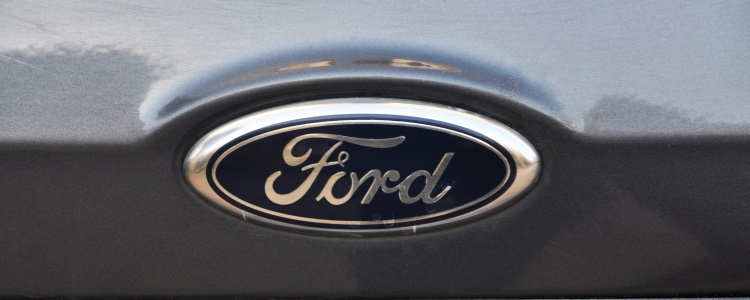The difference between a five year auto loan and a seven year auto loan could be thousands of dollars. Which will you choose?

When the car shopping process begins most people start with figuring out their monthly budgets and how much they can afford to spend on a payment, insurance, gas, and maintenance. While this is a good place to start, it can leave you paying thousands more than you need to on your vehicle loan. It's important to have a payment that you can afford and make on time each month so your credit scores don't fall, but it's also important to not over pay for a vehicle either.
The most important aspect to look at when financing a vehicle is the total cost of the car and how long it is going to take you to pay it off. The average loan term a few years ago was anywhere from 48-60 months, but according to Experian the average loan terms in 2012 was seven years, or 84 months. Borrowers are becoming overwhelmed with keeping to a monthly payment they have set in their minds, and aren't considering the disadvantages of a seven year loan.
Interest Costs for 84 Month Loans
Having a payment set in your mind of what you want to pay each month and stretching your loan term out to meet that payment can be detrimental to your finances. What most lenders won't tell you is that even though you are meeting your monthly goal, you are paying a lot more interest over the life of the loan.
For example, say you bought a $25,000 new car, you put $2,000 down, and received a 3.5% interest rate for a five a year loan; your payment would be about $420 a month. When you set up your budget you decided that you couldn't spend any more than $325 a month for a vehicle so you stretch the car loan out another two years. Typically, a longer loan term comes with a slightly higher interest rate, so you calculate your auto loan payment with the new terms of a 5% interest rate over 84 months and your payment is $325 on the dot. Perfect, right? While you are saving a total of $95 a month what you don't realize is that you will pay $2,100 more over the life of an 84 month loan than you would over a 60 month loan.
Most lenders would love for you to take out a seven year loan because it's more money in their pockets, and it's really easy for them to fool you into thinking you're getting a good deal. Don't be a victim to this game. If you can adjust your monthly budget to accommodate a slightly higher payment you can save yourself thousands over the life of your loan.
You Will Deal with Negative Equity Faster
If you buy a new car off the dealer lot you are most likely going to be upside-down on the loan very quickly. This is because new cars depreciate the most in the first three years, generally about 22% in the first year alone. Therefore, you automatically owe more than what the car is worth. This can be avoided if you make a large enough down payment, around 20%, but typically that doesn't happen. Most people tend to put, at most, 10% down which means they will be upside-down at the start of their loan.
You won't necessarily deal with negative equity on your auto loan forever, but the time that it takes for you to get right-side-up again is dependent on the following:
- Which vehicle you purchased
- How much of a down payment you had
- How long your loan term is
Keep in mind, the bigger your down payment is the less you need to finance. When you make a down payment of 20 percent you are already making up for the first year's depreciation which means you will start to build equity almost immediately. Also, in the first half of your loan most of your payments go towards the interest on the loan not the principle balance, and therefore, if you have an 84 month auto loan you won't start paying a significant down on the principal until four years into the loan. This results in you owing more on the loan than what the car is worth.
Having no equity; or negative equity; in your car can be detrimental to you if and when you decide to get rid of it. Regardless of whether you try to sell the car privately or you wish to do a trade-in at the dealership they will only give you what the car is worth, not what you owe. You will then be responsible for coming up with the difference of the two amounts to pay off your loan completely.
You're Car Isn't Right Anymore
When you buy a brand new car you immediately fall in love with the shiny wheels, the cool new technology, that new car smell, and how perfectly smooth everything runs. But what happens five years from now when that car isn't new anymore and you see a newer, better model in the dealership show room floor? Or more than that, your family unexpectedly expands and you need to purchase a new car but your loan is for another two years?
This is something that happens often, and unfortunately, there aren't many options. The most common things people will do in this situation is trade the vehicle in and take the remaining balance of the old loan and roll it over into a new one. Now, this can and will get you into a new car loan and out of your old car, but doing this means you are starting your loan off already under water. The finance amount is already well over what your new car is worth, and it is going to take you even longer to build equity.
Resale Value Diminishes
When it comes time to resell your car you will get a much better deal on an automobile that is five years old, as opposed to a vehicle that is seven years old. This is especially true when trying to do a trade-in at the dealership. Five year old cars fit well into dealer's certified pre-owned programs, and can make a pretty penny for the dealer. A seven year old car, on the other hand, won't sell as quickly, and is less desired by consumers which could mean the dealer is taking a big hit on profit.
Finance a Different Car
If you are looking at a car that is too high above your monthly budget for a five year loan it could mean that you are searching too far out of your over-all price range. Keep your expectations realistic, and try to find a car that you love that is a little less expensive. This could mean venturing out to used car dealership lots to find a second-hand late model vehicle that has a reasonable amount of miles and runs great. This option will give you:
- Cheaper monthly payments
- Less of a chance to be upside down
- More affordable insurance premiums
If you are worried about having to pay out of pocket for any repairs that may need to be done in the future, consider a certified used car program. These cars are paired with a dealership warranty, and usually have the option of buying an additional extended warranty. Used cars can be a great option for the buyer that is on a strict budget, but still wants to drive around in style.
As We See It
At Auto Credit Express we recommended sticking to an auto loan that is no longer than 60 months, or 5 years, but if it is absolutely necessary to get a longer loan we can help you do so. We have been helping customers with good and bad credit find a dealership in their area that will help them secure affordable auto financing for their budgets for over two decades.
Let us do the research for you and get you back on the road in a new or used vehicle that you will both love and that fits in to your budget. Get started today by filling out our online auto loan application.
















